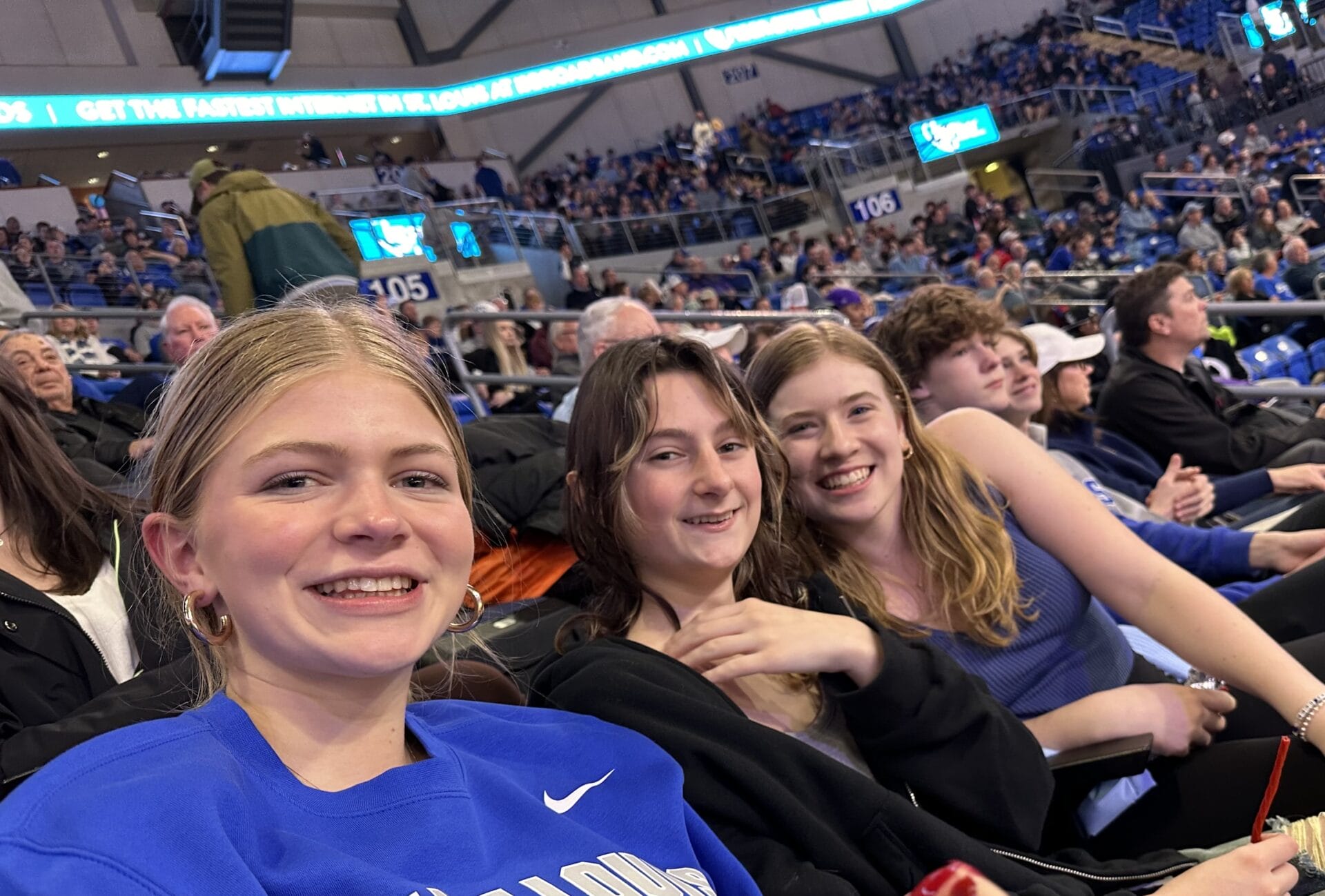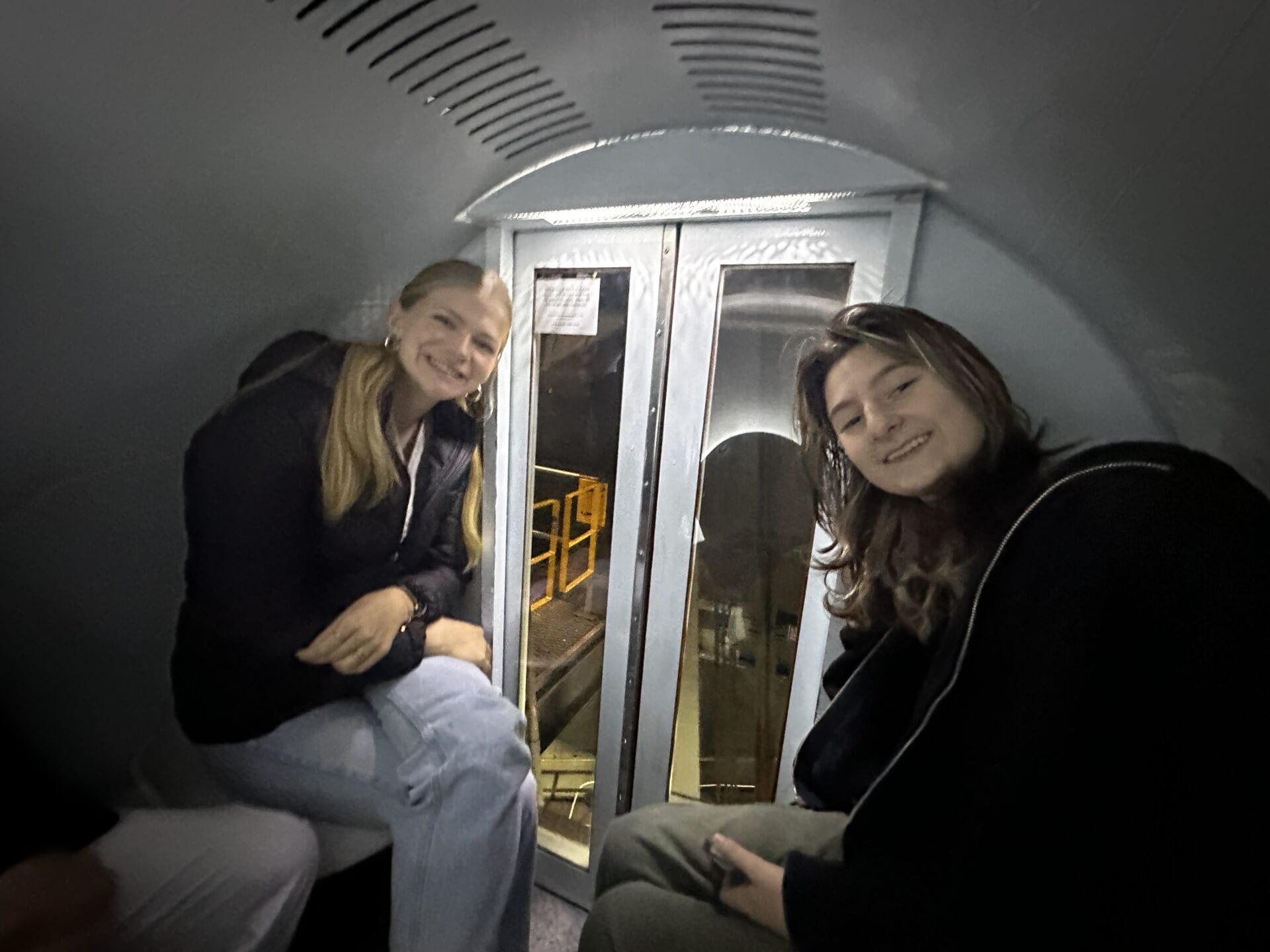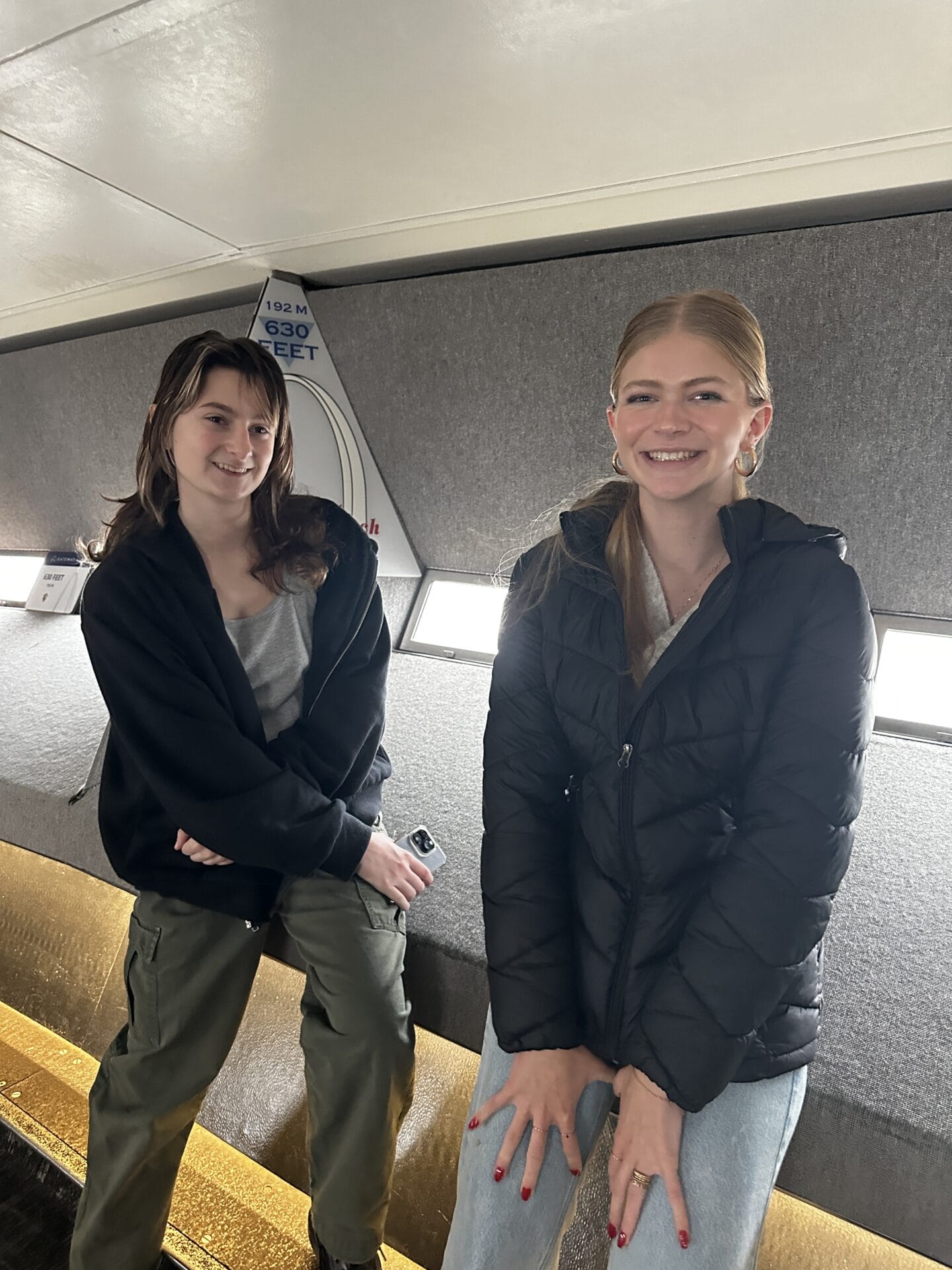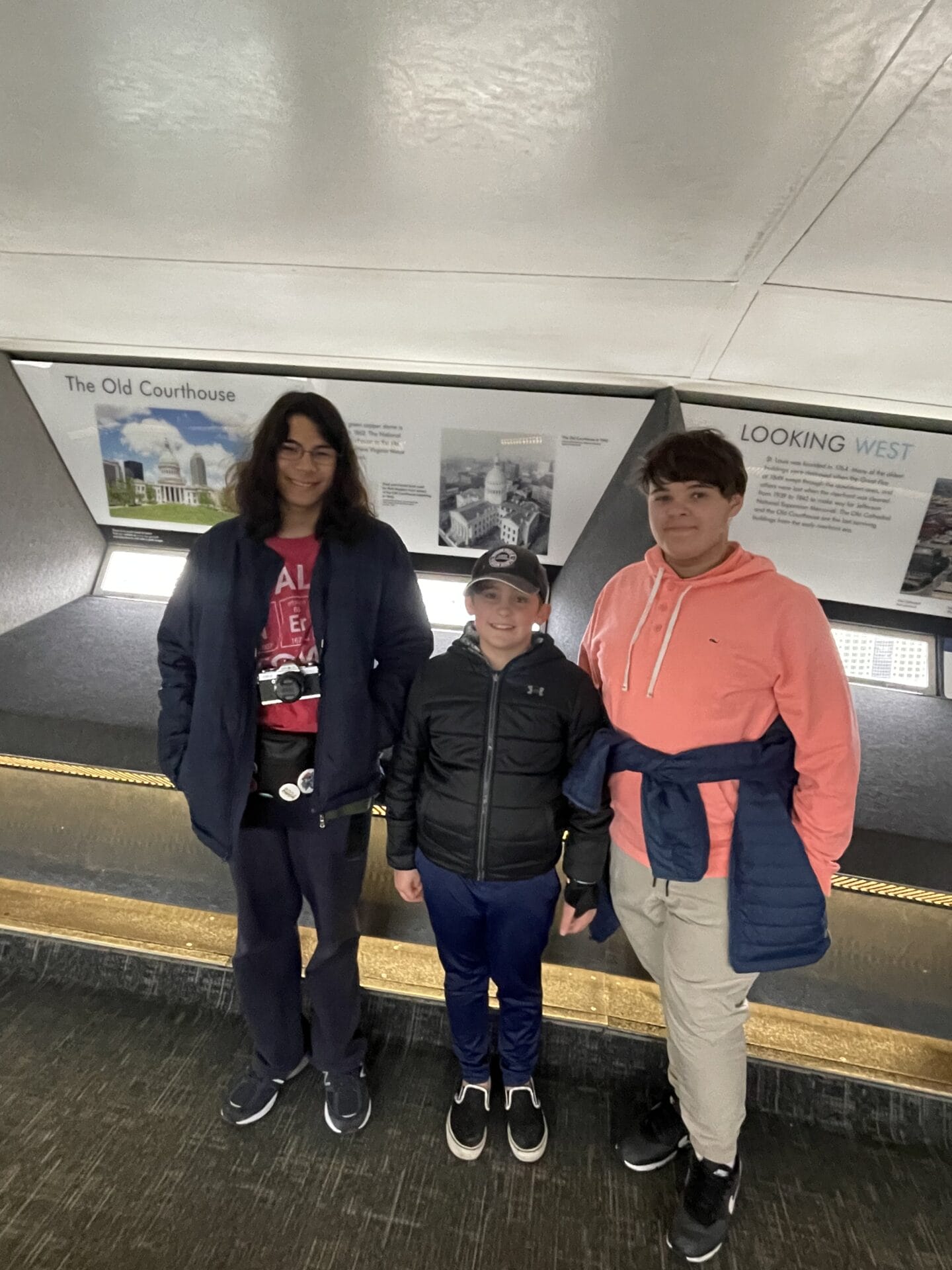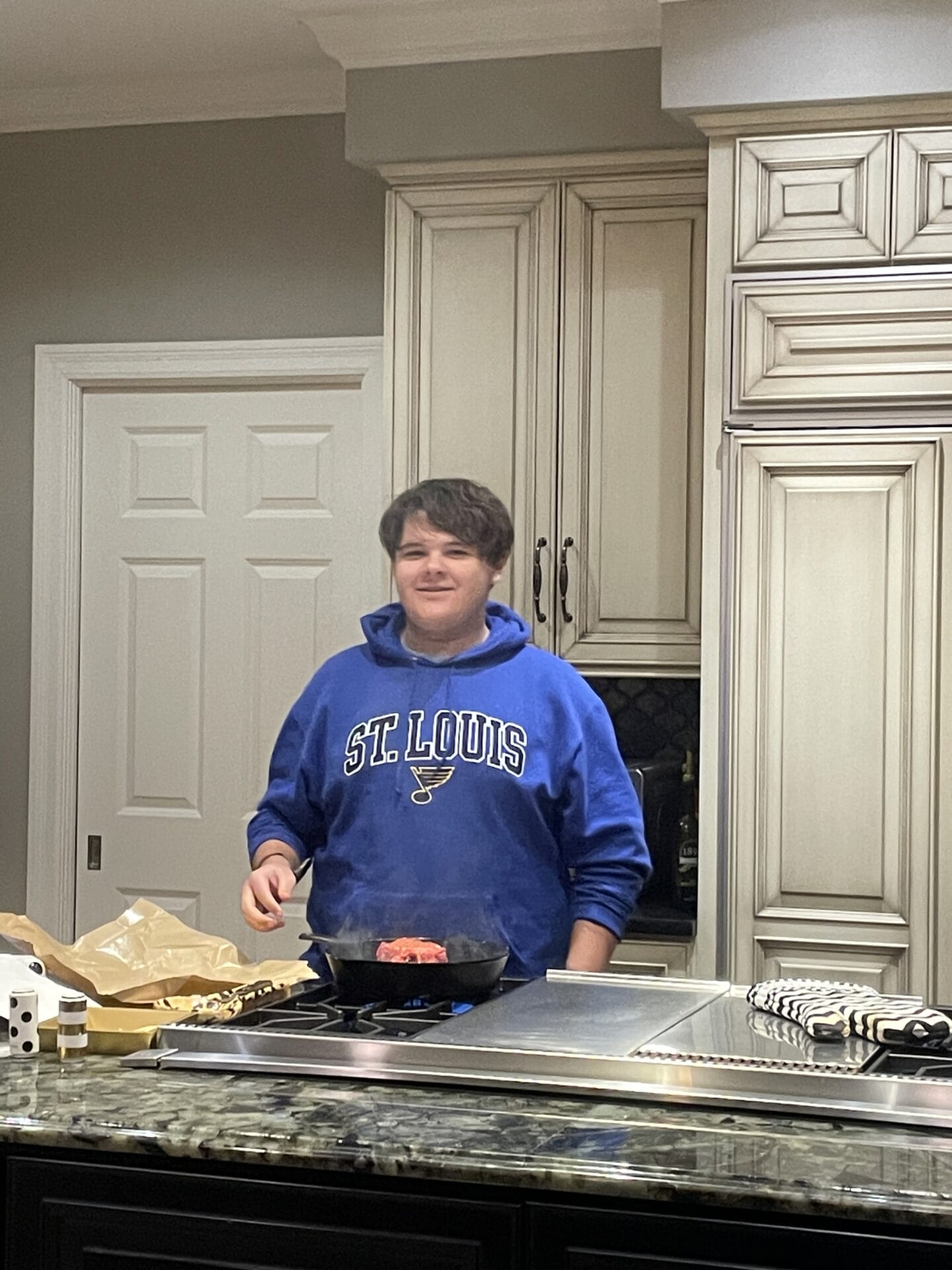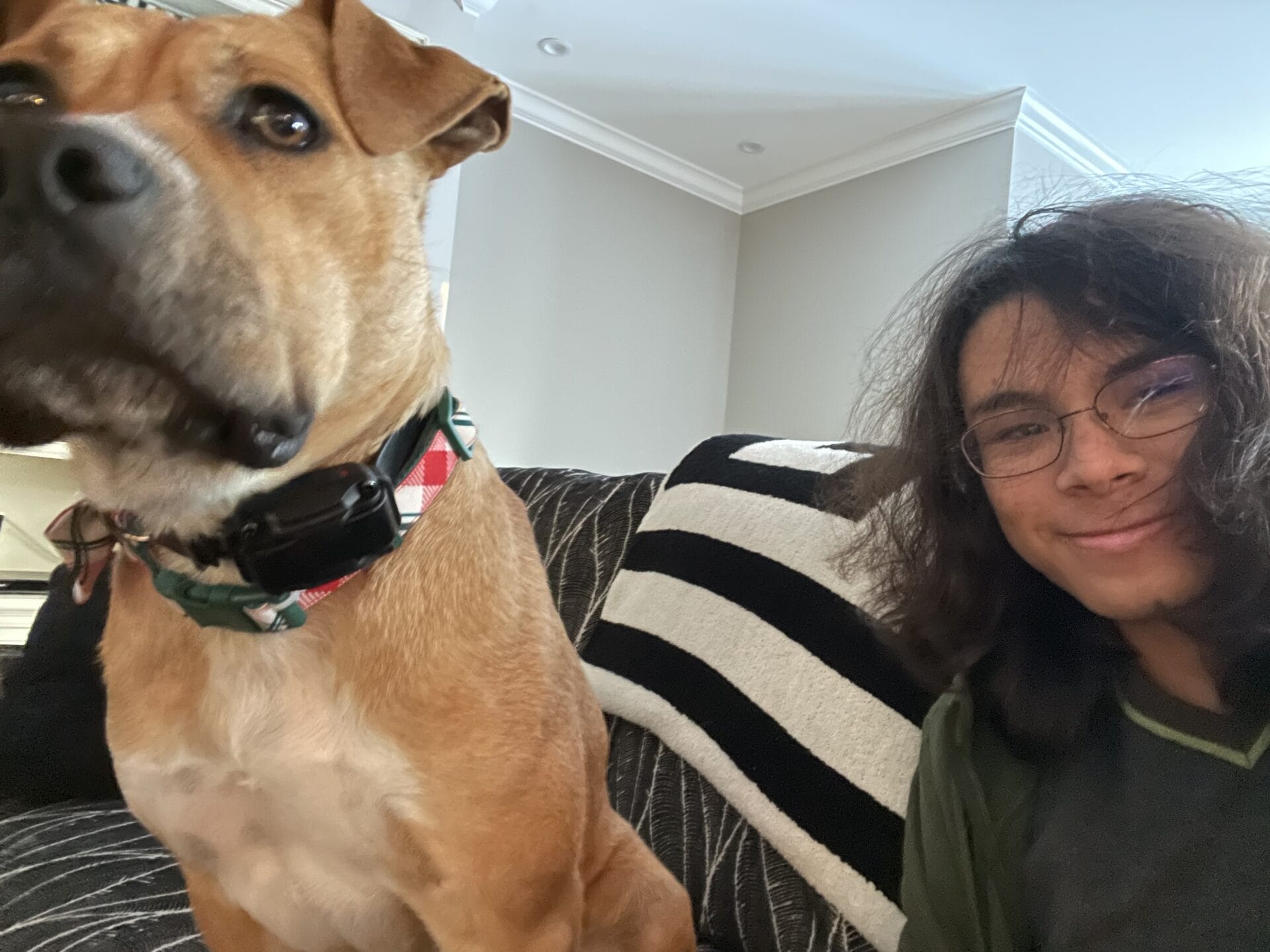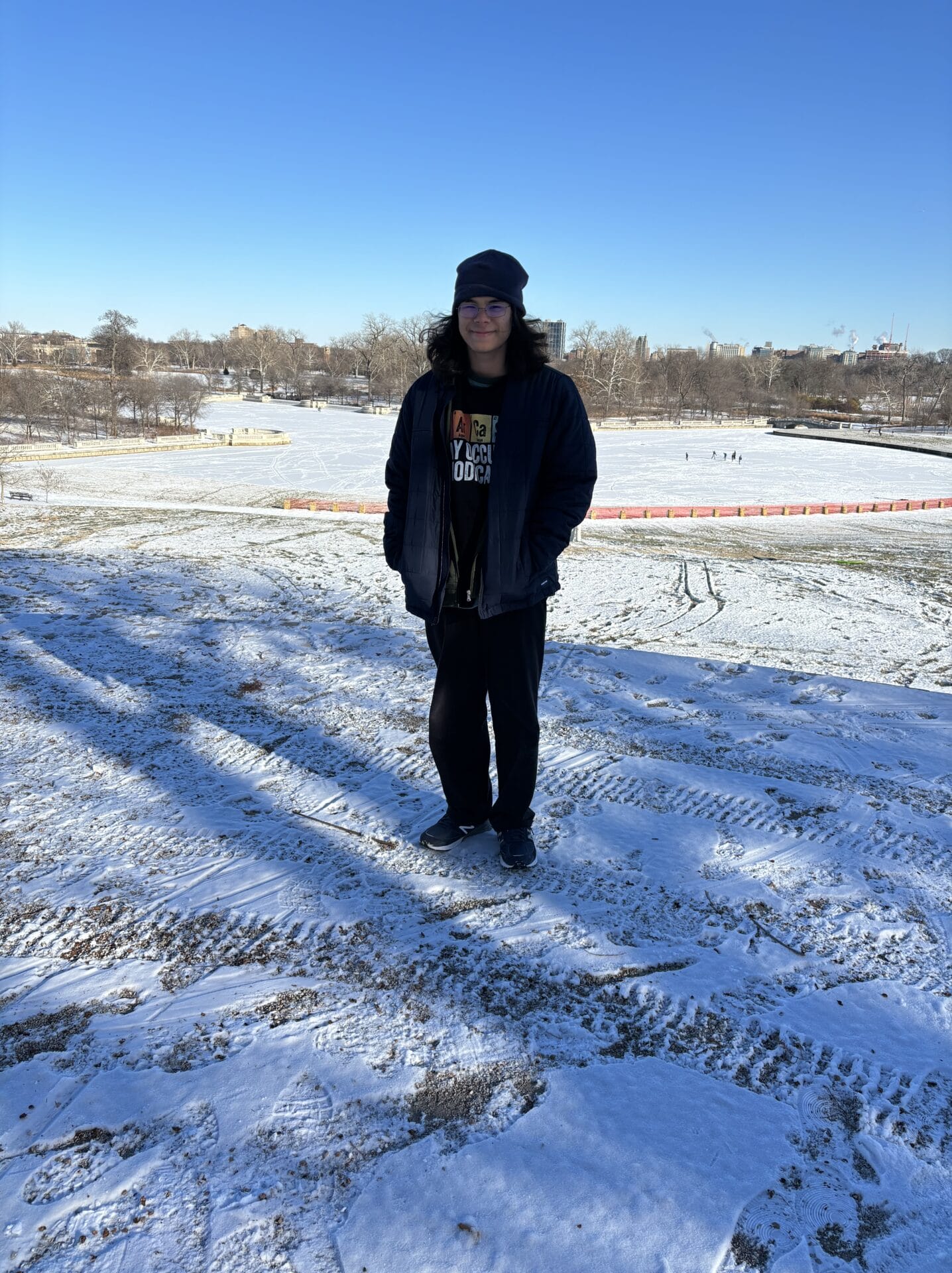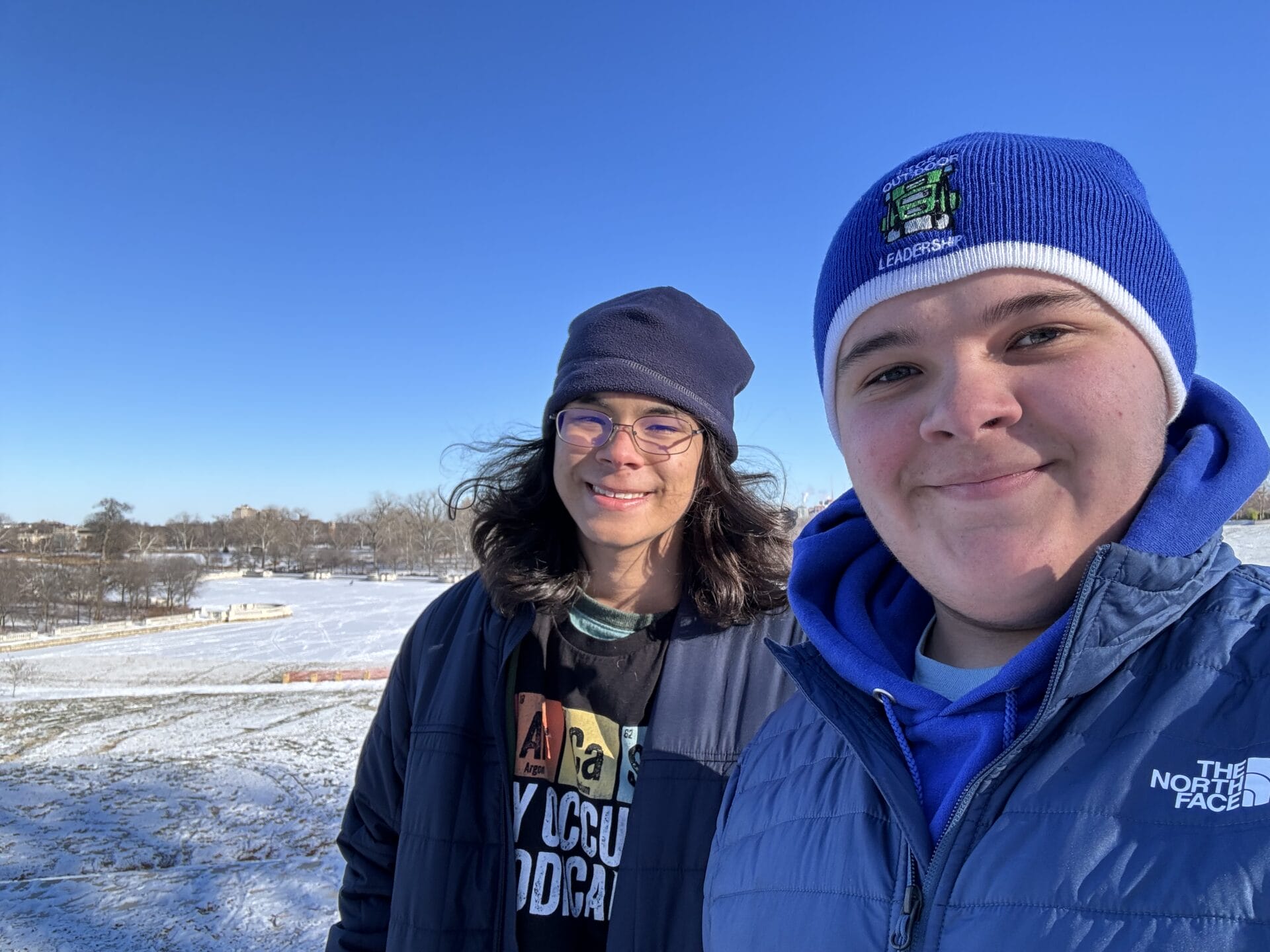In 2019, MICDS joined a domestic exchange program called The Network of Complementary Schools or “The Network.” Through The Network, each school year, several students visit MICDS and St. Louis from other states and are hosted by our students and their families; in exchange, our students visit their exchange students and their families at their respective schools in different states. This program allows for new perspectives to grow and relationships to form without the need to leave the country. A world of new experiences is given to all who participate as students try life at a different school and explore a new city with a new family in a different state for a short amount of time.
Katherine at Bush School
During Winter Term, Katherine Royce ’24 went to the Bush School in Seattle and stayed with 12th grader Deirdre K. With her host family, Katherine went to a school basketball game, played basketball and football with Deirdre and her friends, watched a movie, visited Mercer Island, ventured to the host family’s cabin where the family went skiing, saw a herd of elk roaming in the neighborhood, went out to ice cream, and, of course, became a temporary student at Bush School. Bush “was very different than what I imagined,” she wrote. “The class sizes are much smaller than I expected; their whole grade is only 70 people! There also isn’t a parking lot within the campus, so we have to park up this steep hill that everyone tells me is a pain to walk up at the end of the day. Additionally, teachers are only called by their first names, which I found interesting. A difference I noticed between Bush and MICDS was that there are fewer classes in a day, and each day besides Wednesday, there is an hour and twenty-minute free period, which I thought was a great idea for people to relax or get their school work done.”
Some of the classes Katherine went to were Statistics, Advanced Chemistry, Literature in Psychology, Acrylic Painting, Animal Behaviors, Spanish, Government, and Marine Biology. “For their [Marine Biology] final, the students were required to create a sea monster using aspects from all different marine groups, and I got to see everyone present and share which marine group each body part of the monster was from,” said Katherine. “Everyone got super creative with their creatures and it was fun to learn about different defense mechanisms associated with different marine life. I also met some students who had friends exchange at MICDS in years past and it was interesting to hear about what they thought of their experience. People in the senior class organized a going away dinner for me which was so much fun!” At the end of January, Katherine and her family returned the favor as they hosted Deirdre for a week.
“Although I was initially anxious to go to a new city and stay with people I didn’t know, I wouldn’t change my experience for anything else,” sums up Katherine. “I quickly became close with my host student and her friends, and I was able to see Seattle through her eyes. I think it was helpful to ease my worries about going to college next fall, and it gave me an opportunity to make new friends and explore a new city.”
Tommy at Providence Day
For his own domestic exchange adventure, Tommy Goodman ’26 went to Providence Day in Charlotte, North Carolina, where he stayed with 10th grader George C. during Winter Term. With his host family, Tommy went to a Carolina Panthers game, baseball practice, a CFP championship watch party, baseball card shops, toured some colleges (including Wake Forest, UNC, and Duke), and a PD basketball game. He also got to experience what being a student at Providence Day is like.
“One big difference is the length of classes. Their classes are only an hour long, but lunch is at 1 p.m. for everyone after four classes. There is also a break after two classes,” Tommy shared. “The campus is similar to MICDS with the different buildings, but a little bit smaller.” Tommy took a variety of classes where he practiced cube roots and powers of i in math, discussed the western expansion in history, tackled electron configuration in science, and more, including lessons in Spanish, English, and photography. He also went to advisory and an assembly on MLK Day. He noted, “The school had to split up for assembly because the school has gotten a lot bigger recently.”
Tommy shared some final takeaways. “Providence Day is very similar to MICDS, however, there are a lot of changes to the schedule as well as what classes are available. It was interesting to see that there was a huge interest in football; even in early January, they were practicing. The classes that I took were very similar to the ones I have at home, but shorter. Every day felt kind of like a 9 day.”
MICDS Students and Families Host
Also in January, MICDS students Sophia Cernicek ’26 hosted Eva F. from the Bush School and Dalton Costick ’26 hosted Charlie A. from Kinkaid School in Houston, Texas.
Dalton shared his take on what it was like to be a host. “It was quite an interesting experience to host an exchange student,” he reflected. “I learned a lot from Charlie from his perspective on things being an outsider looking in on day-to-day life at MICDS. I had a lot of fun hosting Charlie and got to experience things again for the first time while being with him.”
Whether hosting students here at home or being hosted in other states and schools, there certainly is a world of learning to be done through the domestic exchange program. Erin Hamill, Director of Global Learning, shared, “The Network Domestic Exchanges are a wonderful way for our students to explore the incredible diversity of our own country while reaping the benefits of having a host family experience. Through traveling on their own and experiencing something new and completely different, they gain a sense of independence, learn to become more adaptable, discover new interests and strengths, and form new friendships. Every summer, the Network School Advisors meet for several days at one of the member schools to see what our students will experience if they choose that school for an exchange. In honesty, the true purpose of the annual meeting is for us advisors to spend several days together to get to know the other schools’ advisors well. That gives us confidence that our students are in good hands when they participate in a Network Exchange.”
Thank you to Ms. Hamill, our host families, host students, and to the students who embraced the chance to live and learn this January in another part of the country. What a great way to lean into our mission of being responsible, global citizens who can embrace the world with confidence and all its people with compassion!
